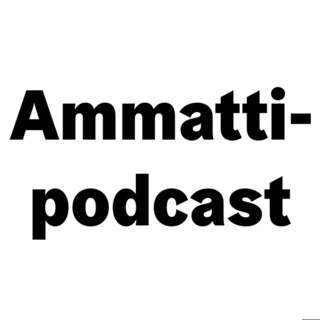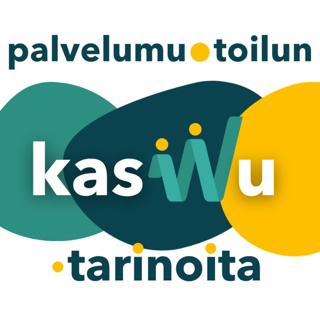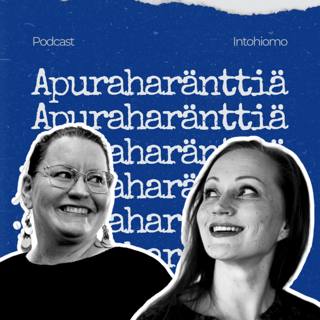
a16z Podcast: A Whirlwind Tour of Policy Issues in Tech
There's a "game" being played right now among lawmakers and tech companies around policy issues, and as tech touches everything, everyone has to play some version of it. Even if the game keeps changing. Even if they don't want to. Or do they? What if the game could be reinvented in a way that respects, but doesn't reinforce, an entrenched system -- especially given newer ways of engaging? Part of the problem is that only big companies can afford to play the game, argues Julie Samuels, executive director at Engine (which does research, analysis, and advocacy for tech entrepreneurship): "Bad policy is bad policy because it's bad policy. But the big companies can afford bad policy." Joining Samuels in this a16z Podcast discussion about the evolution of policy and tech is Techdirt's Mike Masnick (who also founded the "digital-native think tank" The Copia Institute). They end by giving us a whirlwind tour of current policy issues in tech -- from patents and IP in China to cybersecurity, privacy, and Safe Harbor in Europe ... And the gig economy, talent, and immigration. All in just under 60 minutes. Stay Updated:Find a16z on XFind a16z on LinkedInListen to the a16z Podcast on SpotifyListen to the a16z Podcast on Apple PodcastsFollow our host: https://twitter.com/eriktorenberg Please note that the content here is for informational purposes only; should NOT be taken as legal, business, tax, or investment advice or be used to evaluate any investment or security; and is not directed at any investors or potential investors in any a16z fund. a16z and its affiliates may maintain investments in the companies discussed. For more details please see a16z.com/disclosures. Hosted by Simplecast, an AdsWizz company. See pcm.adswizz.com for information about our collection and use of personal data for advertising.
3 Marras 201551min

a16z Podcast: Telepresence and Tech for a Distributed Workforce
Telepresence. It's an ugly, outdated word for an attractive and current/ emerging phenomenon where people can work from anywhere, anytime. It's technology for the way we work today. But is it as easy as adding good tech to a constantly evolving problem? What about etiquette? And design uber alles? And finally ... why does telepresence even matter? Well, if you can't hire talent locally, you can hire them remotely. That constraint is the easier of all the other requirements to relax. Or so argue the guests on this episode of the a16z Podcast: Scott Hassan, president and CEO of Suitable Technologies, maker of the popular Beam robots and formerly founder of Willow Garage and eGroups (now Yahoo Groups) as well as key software architect and developer of Google, Alexa Internet, and the Stanford Digital Library; Shan Sinha, formerly of DocVerse (acquired by Google) and co-founder and CEO of Highfive, video and web conferencing for everyone; and Craig Walker, formerly of Google and Yahoo Voice, now co-founder and CEO of Switch -- makers of Uberconference and other products for cloud-based enterprises looking to update their communications. Stay Updated:Find a16z on XFind a16z on LinkedInListen to the a16z Podcast on SpotifyListen to the a16z Podcast on Apple PodcastsFollow our host: https://twitter.com/eriktorenberg Please note that the content here is for informational purposes only; should NOT be taken as legal, business, tax, or investment advice or be used to evaluate any investment or security; and is not directed at any investors or potential investors in any a16z fund. a16z and its affiliates may maintain investments in the companies discussed. For more details please see a16z.com/disclosures. Hosted by Simplecast, an AdsWizz company. See pcm.adswizz.com for information about our collection and use of personal data for advertising.
3 Marras 201538min

a16z Podcast: 'The Most Boring Yet Valuable' 20 Minutes, All About Board Minutes
"The most boring yet valuable podcast in a16z history" -- he (our guest Joe Grundfest) said it, not we! That’s because in this episode of the a16z Podcast, Stanford law professor and former SEC commissioner Grundfest -- and securities litigation lawyer Nicki Locker of Wilson Sonsini Goodrich & Rosati -- discuss not just the importance, but the almost literary balance ("somewhere between haiku and Tolstoy") behind doing board meeting minutes just right. Yes, that's right: this is a podcast all about board minutes. But it is arguably the most "valuable litigation insurance you can buy for free” ... especially if you learn to create a record that can survive an attack by a conspiracy theorist. Stay Updated:Find a16z on XFind a16z on LinkedInListen to the a16z Podcast on SpotifyListen to the a16z Podcast on Apple PodcastsFollow our host: https://twitter.com/eriktorenberg Please note that the content here is for informational purposes only; should NOT be taken as legal, business, tax, or investment advice or be used to evaluate any investment or security; and is not directed at any investors or potential investors in any a16z fund. a16z and its affiliates may maintain investments in the companies discussed. For more details please see a16z.com/disclosures. Hosted by Simplecast, an AdsWizz company. See pcm.adswizz.com for information about our collection and use of personal data for advertising.
3 Marras 201521min

a16z Podcast: Boards and the Power of Networks
It's easy to argue for "choosing possibility" when it comes to addressing diversity and inclusion in tech when certain people have access to networks and others don't. BoardList -- more of a talent marketplace than a "list" per se -- is an effort to address part of that issue, bringing more qualified women onto the boards of tech companies. But isn't it risky for startup CEOs to add unknowns onto their boards (and what's the purpose of those boards, anyway?) Does it take away seats from others including the company's investors? In this segment of the a16z Podcast, serial entrepreneur and BoardList founder Sukhinder Singh Cassidy and Silicon Valley Bank's John China discuss these issues and more -- including how boards (and especially common stock in startup boards) are one way to immediately start changing things. Stay Updated:Find a16z on XFind a16z on LinkedInListen to the a16z Podcast on SpotifyListen to the a16z Podcast on Apple PodcastsFollow our host: https://twitter.com/eriktorenberg Please note that the content here is for informational purposes only; should NOT be taken as legal, business, tax, or investment advice or be used to evaluate any investment or security; and is not directed at any investors or potential investors in any a16z fund. a16z and its affiliates may maintain investments in the companies discussed. For more details please see a16z.com/disclosures. Hosted by Simplecast, an AdsWizz company. See pcm.adswizz.com for information about our collection and use of personal data for advertising.
29 Loka 201522min

a16z Podcast: Holy Non Sequiturs, Batman: What Disruption Theory Is ... and Isn't
Disruption is such an overused buzzword. But the word itself does have meaning: As defined by the Oxford and Merriam-Webster dictionaries, it is a "disturbance...that interrupts an event, activity, or process" and that causes something "to be unable to continue in the normal way". It's also the name for an influential theory about innovation first coined by Clayton Christensen in a 1995 article and later publicized through his 1997 book, The Innovator's Dilemma. But that was nearly two decades ago! Not only has the concept been much misunderstood and mangled since then, surely it's changed given the advent of new tech and business models today? Is it still relevant, given cases that seemingly defy the theory and its application? Are we at risk of overfitting this "verbally inflated" term to everything, and in doing so, are we missing what disruption theory really says -- and doesn't? Michael Raynor, co-author of the followup book on disruptive innovation with Christensen -- and author of another book that later tested the predictive power of the theory -- joins this episode of the a16z Podcast to answer these questions and more. He also hints at some nuggets from an upcoming article in Harvard Business Review with Christensen and others that addresses the latest formulations of this theory of innovation. Stay Updated:Find a16z on XFind a16z on LinkedInListen to the a16z Podcast on SpotifyListen to the a16z Podcast on Apple PodcastsFollow our host: https://twitter.com/eriktorenberg Please note that the content here is for informational purposes only; should NOT be taken as legal, business, tax, or investment advice or be used to evaluate any investment or security; and is not directed at any investors or potential investors in any a16z fund. a16z and its affiliates may maintain investments in the companies discussed. For more details please see a16z.com/disclosures. Hosted by Simplecast, an AdsWizz company. See pcm.adswizz.com for information about our collection and use of personal data for advertising.
24 Loka 201536min

a16z Podcast: What Comes After the Smartphone
Technology is a progression of new ideas and new platforms gobbling up the one that came before. In the world of computers we went from mainframes to mini computers to PCs. And then came the mobile phone, which, in the form of the smartphone, has dwarfed them all. But what does that to mobile? When you have already gotten to everybody on earth, what comes along that is 10X the size? a16z’s Benedict Evans and Steven Sinofsky offer their thoughts on where technology is today, why the perfection of the current crop of PCs signals the category’s collapse, and what happens after the smartphone. Stay Updated:Find a16z on XFind a16z on LinkedInListen to the a16z Podcast on SpotifyListen to the a16z Podcast on Apple PodcastsFollow our host: https://twitter.com/eriktorenberg Please note that the content here is for informational purposes only; should NOT be taken as legal, business, tax, or investment advice or be used to evaluate any investment or security; and is not directed at any investors or potential investors in any a16z fund. a16z and its affiliates may maintain investments in the companies discussed. For more details please see a16z.com/disclosures. Hosted by Simplecast, an AdsWizz company. See pcm.adswizz.com for information about our collection and use of personal data for advertising.
22 Loka 201522min

a16z Podcast: Belief -- An Interview with Oprah Winfrey
This special episode of the a16z Podcast is based on a Q&A from an early screening we hosted of OWN (Oprah Winfrey Network)'s "Belief", which just premiered and airs over seven consecutive nights. This week-long documentary series depicts how people -- with a wide range of faiths and spiritual practices around the world -- search for deeper meaning and connection with the world around them. But ultimately, it's about the rituals, stories, and relationships that bind us all together as human beings. The Q&A features Oprah Winfrey interviewed by Ben -- or being interviewed by Oprah, depending on how you look at it (and getting schooled in how to do so!) -- as well as one of the series guests, Resham Thakkar, joining them onstage from the audience. Stay Updated:Find a16z on XFind a16z on LinkedInListen to the a16z Podcast on SpotifyListen to the a16z Podcast on Apple PodcastsFollow our host: https://twitter.com/eriktorenberg Please note that the content here is for informational purposes only; should NOT be taken as legal, business, tax, or investment advice or be used to evaluate any investment or security; and is not directed at any investors or potential investors in any a16z fund. a16z and its affiliates may maintain investments in the companies discussed. For more details please see a16z.com/disclosures. Hosted by Simplecast, an AdsWizz company. See pcm.adswizz.com for information about our collection and use of personal data for advertising.
16 Loka 201528min

a16z Podcast: Dell + EMC -- Why the Python Just Ate the Cow
We just witnessed the largest acquisition in tech history, and before Dell made it happen, it would have been hard to imagine. Not so much that the two companies would come together, but that the much smaller Dell would be buying its larger peer EMC. If he imagined anyone doing the acquisition it would have been EMC, says a16z’s Peter Levine, but the realities of being a public company and the pressure of activist shareholders are what made this an “upside down acquisition.” “Dell was able to do this deal because they were a private company and had no activists,” Levine says. “EMC could only do this deal because they had activists.” Levine is joined on this segment of the a16z podcast by Actifio Founder and CEO Ash Ashutosh, and Cumulus Networks Co-founder and CEO JR Rivers in a conversation examining the Dell/EMC deal. What were the technological forces that brought these two companies together, and what does that say about the future of enterprise technology and the people who buy it? Finally, what role did the public and private markets play in this deal, and what will Michael Dell need to do to pull it off? The views expressed here are those of the individual AH Capital Management, L.L.C. (“a16z”) personnel quoted and are not the views of a16z or its affiliates. Certain information contained in here has been obtained from third-party sources, including from portfolio companies of funds managed by a16z. While taken from sources believed to be reliable, a16z has not independently verified such information and makes no representations about the enduring accuracy of the information or its appropriateness for a given situation. This content is provided for informational purposes only, and should not be relied upon as legal, business, investment, or tax advice. You should consult your own advisers as to those matters. References to any securities or digital assets are for illustrative purposes only, and do not constitute an investment recommendation or offer to provide investment advisory services. Furthermore, this content is not directed at nor intended for use by any investors or prospective investors, and may not under any circumstances be relied upon when making a decision to invest in any fund managed by a16z. (An offering to invest in an a16z fund will be made only by the private placement memorandum, subscription agreement, and other relevant documentation of any such fund and should be read in their entirety.) Any investments or portfolio companies mentioned, referred to, or described are not representative of all investments in vehicles managed by a16z, and there can be no assurance that the investments will be profitable or that other investments made in the future will have similar characteristics or results. A list of investments made by funds managed by Andreessen Horowitz (excluding investments and certain publicly traded cryptocurrencies/ digital assets for which the issuer has not provided permission for a16z to disclose publicly) is available at https://a16z.com/investments/. Charts and graphs provided within are for informational purposes solely and should not be relied upon when making any investment decision. Past performance is not indicative of future results. The content speaks only as of the date indicated. Any projections, estimates, forecasts, targets, prospects, and/or opinions expressed in these materials are subject to change without notice and may differ or be contrary to opinions expressed by others. Please see https://a16z.com/disclosures for additional important information. Stay Updated:Find a16z on XFind a16z on LinkedInListen to the a16z Podcast on SpotifyListen to the a16z Podcast on Apple PodcastsFollow our host: https://twitter.com/eriktorenberg Please note that the content here is for informational purposes only; should NOT be taken as legal, business, tax, or investment advice or be used to evaluate any investment or security; and is not directed at any investors or potential investors in any a16z fund. a16z and its affiliates may maintain investments in the companies discussed. For more details please see a16z.com/disclosures. Hosted by Simplecast, an AdsWizz company. See pcm.adswizz.com for information about our collection and use of personal data for advertising.
16 Loka 201536min





















